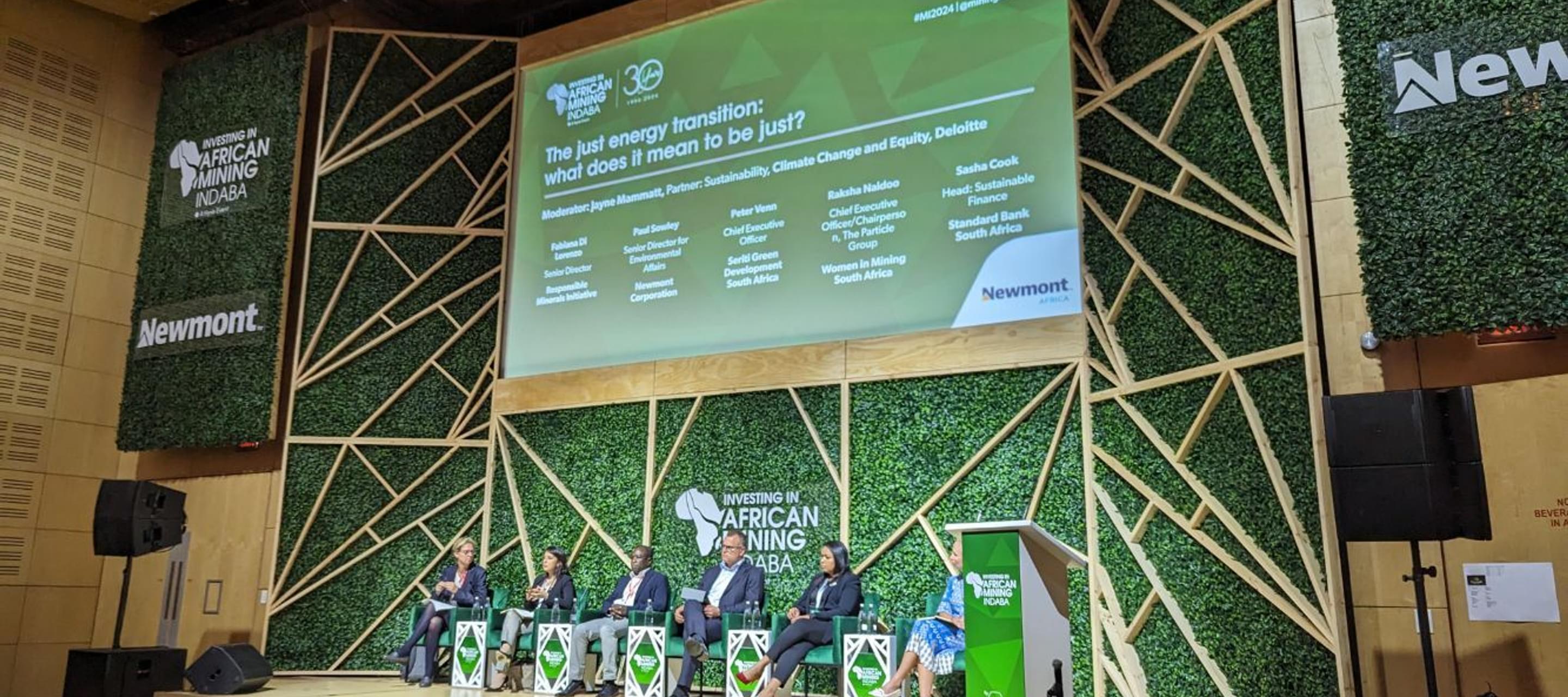Reflections from African Investment Mining Indaba
5 February 2024

The Mining Indaba is an annual event where stakeholders from across the African mining value chain convene to gain and share valuable industry insights, network with influential players, and explore emerging technologies. This year’s African investment indaba, held on the 5th – 8th of February at the Cape Town International Convention Centre was themed ‘Embracing the power of positive disruption: A bold new future for African mining’.
Central to this theme was a focus to unlock the potential of critical minerals and metals on the continent. Africa possesses significant reserves of critical minerals such as graphite, lithium and cobalt. The minerals are essential for driving the energy transition forward. The production of these minerals is expected to increase by nearly 500% by 2050, presenting economic development, environmental protection, and geopolitical leverage for African countries.
However, the extraction and processing of these minerals give rise to social and environmental challenges. For example, the mining of cobalt in the Democratic Republic of Congo is associated with issues such as child labour, unsafe working conditions, and environmental degradation. Anticipated hurdles to unlock the potential of these minerals will encompass the imperative task of safeguarding human rights, improving working conditions, and implementing responsible mining practices.
The sessions at the Indaba unpacked both the opportunities and challenges presented by critical minerals, examining them through three lenses – technological advancement; new forms of innovation; management of social; and environmental disruptions. Among the sessions, two stood out:
1. Navigating land access and managing displacement impacts in critical mineral acquisition
This session explored how to manage displacement impacts and access land when securing critical minerals. Speakers on the panel drew on experiences in their business activities, shedding light on current challenges and key examples. Notably, one speaker shared an interesting case on the implications of inadequate land access and planning processes. The case highlighted a mining company that claimed to have spent close to $2 million per affected household, impacting nearly 500 households to remedy inadequate land access and planning processes. Examples of some of the inadequate management practices mentioned included:
- Poor integration and coordination between land planning teams, land access teams, the potentially affected communities, and decision-makers
- Lack of relevant and specialised expertise on land access and planning (i.e. geologists)
- Lack of/or poor long-term strategies – ‘not thinking life of mine’.
A key takeaway from this discussion was that long-standing social impacts and governance challenges prevail in the mining industry despite dearth of performance standards, principles, and good practice guidance and literature produced over many years.
2. The just energy transition and what it means to be “just”
The session centred around the concept of the energy transition and its intersection with principles of justice. Speakers emphasized the importance of managing and adjusting community expectations, fostering fairness, equity, and inclusion, as well as building trust with potentially affected communities and workers.
Representatives from coal mining companies shared challenges faced in their transition journeys, particularly the difficulty to match renewable industry wages with those in the coal industry. This issue is particularly salient in South Africa, where the unemployment rate is 31%, underscoring the practical challenge such companies are encounter when seeking to manage their environmental impacts while also contributing to livelihood improvements and the elimination of poverty via the energy transition.
Aside from alluding to current challenges in the energy transition, the panel also grappled with possible solutions to facilitate just energy transitions. Among these were strengthening collaboration between the coal and renewable sectors, investing in upskilling across the energy ecosystem - including suppliers and government stakeholders - and accelerated transition finance to support businesses in their decarbonisation journey.
Challenges ahead
There was a clear recognition from the day that partnerships are critical to unleashing the positive power of such wide scale social disruption underway due to the necessity of the energy transition. A common refrain from this very industry-heavy and industry-oriented event was how governments are not doing enough to provide an enabling environment for business to transition, how investments are not moving fast enough, and at the same time the need to build trust with local communities and manage expectations, which is often slow, patient work.
There was a sense that every party is not doing enough or fulfilling their role within the ecosystem, highlighting a collective expectation for each stakeholder along the energy value chain to contribute effectively. Questions remain about who is accountable for upholding the success of the transition, particularly amidst the multitude of transitions occurring simultaneously - spanning from the individual institutions and projects to broader sectoral, regional, national, and international contexts.
The sentiment from the Indaba indicated a consensus that every party must ramp up efforts to meet their end of the ‘bargain’, with much needed clarity around how to measure and assess the quality of transitions at all levels, including how much deeper the Indaba can delve into these issues at next year’s dialogue to provide actionable insights and strategies to propel the transition towards.




